Abstract
Despite their impressive progress in adapting to American life, many Vietnamese still suffer from wartime experiences, culture shock, the loss of loved ones, and economic hardship. Although this trauma creates substantial mental health needs, culture, experience, and the complexity of the American resettlement system often block obtaining assistance. Vietnamese mental health needs are best understood in terms of the family unit, which is extended, collectivistic, and patriarchal. Many refugees suffer from broken family status. They also experience role reversals wherein the increased social and economic power of women and children (versus men and adults) disrupts the traditional family ethos. Finally, cultural conflicts often make communication between practitioners and clients difficult and obscure central issues in mental health treatment. Rather than treating symptoms alone, mental health workers should acknowledge the cultural, familial, and historical context of Vietnamese refugees.
Full text
PDF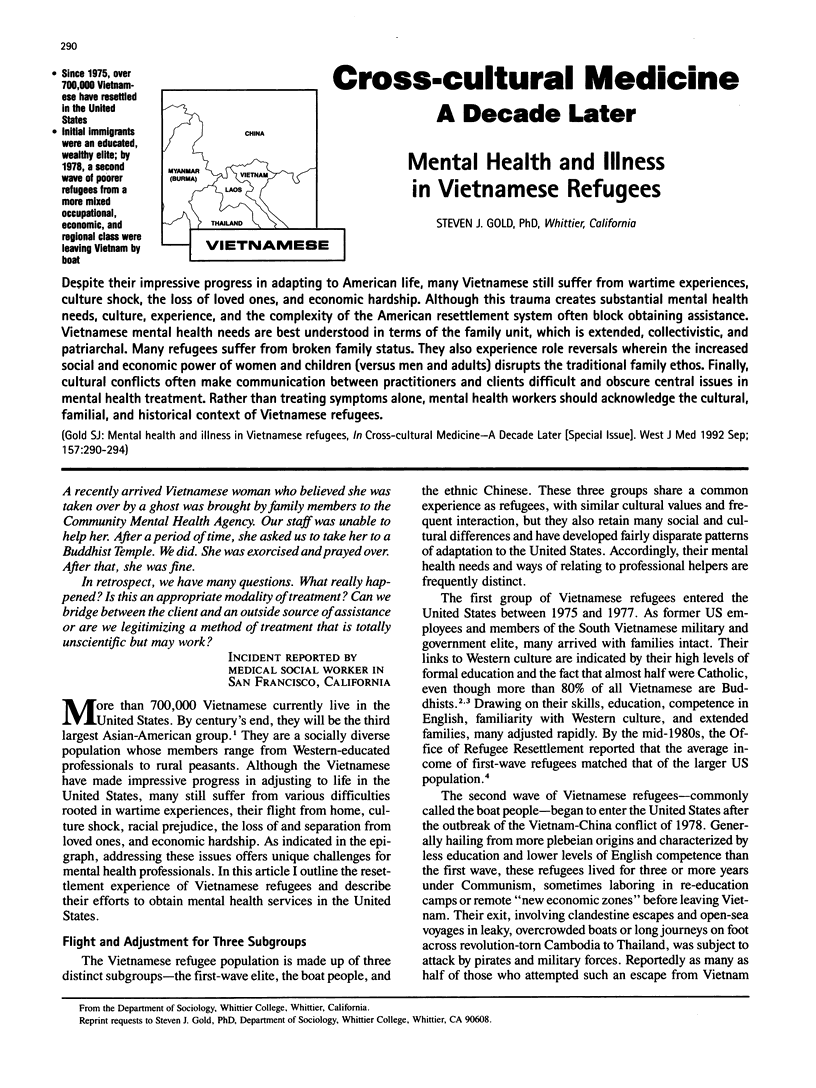
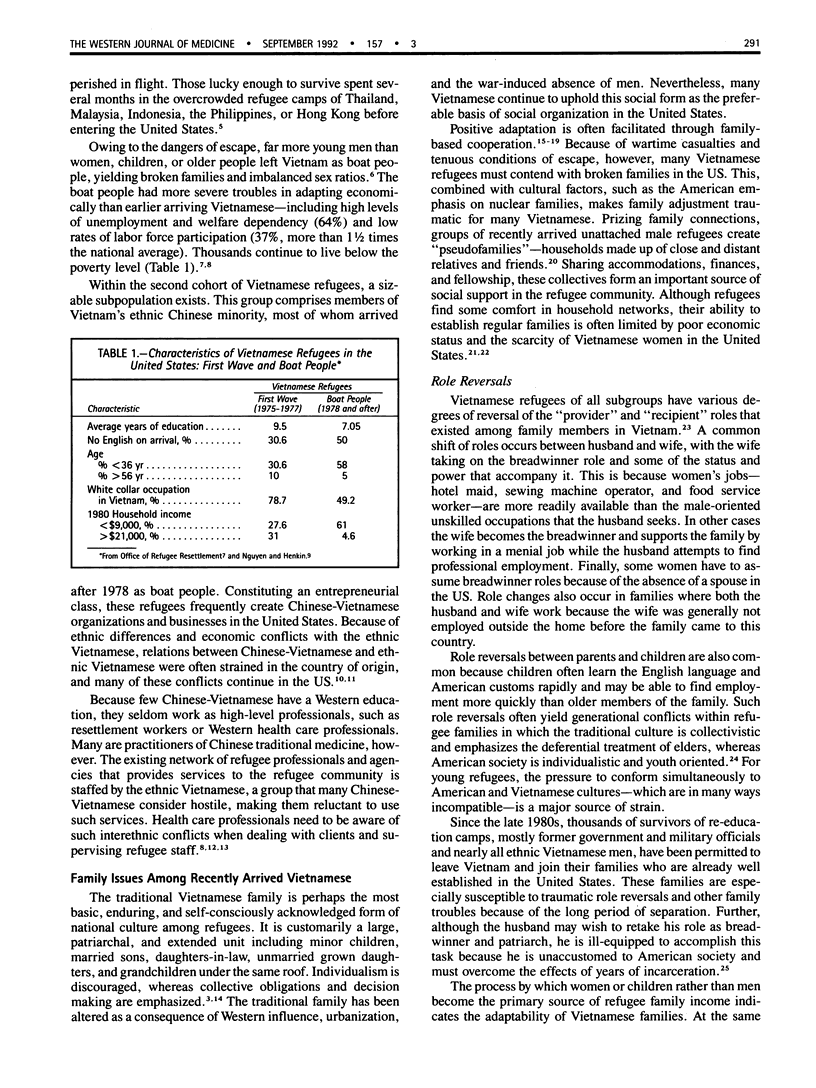
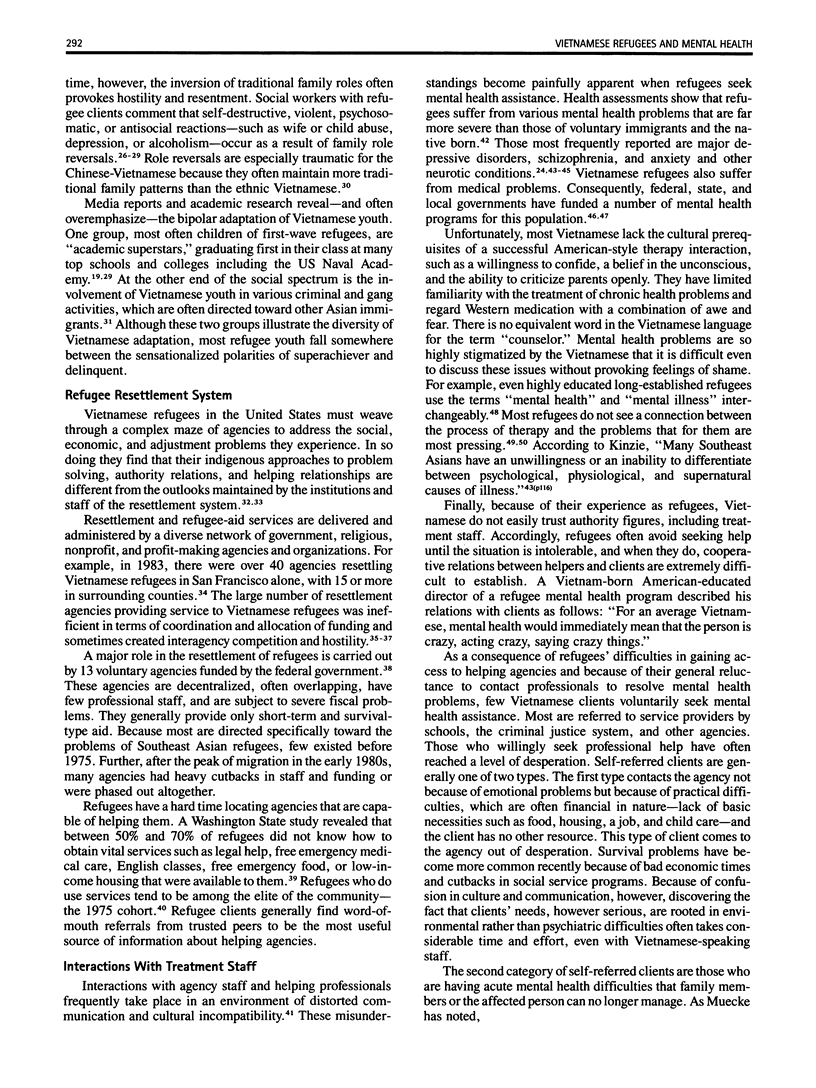
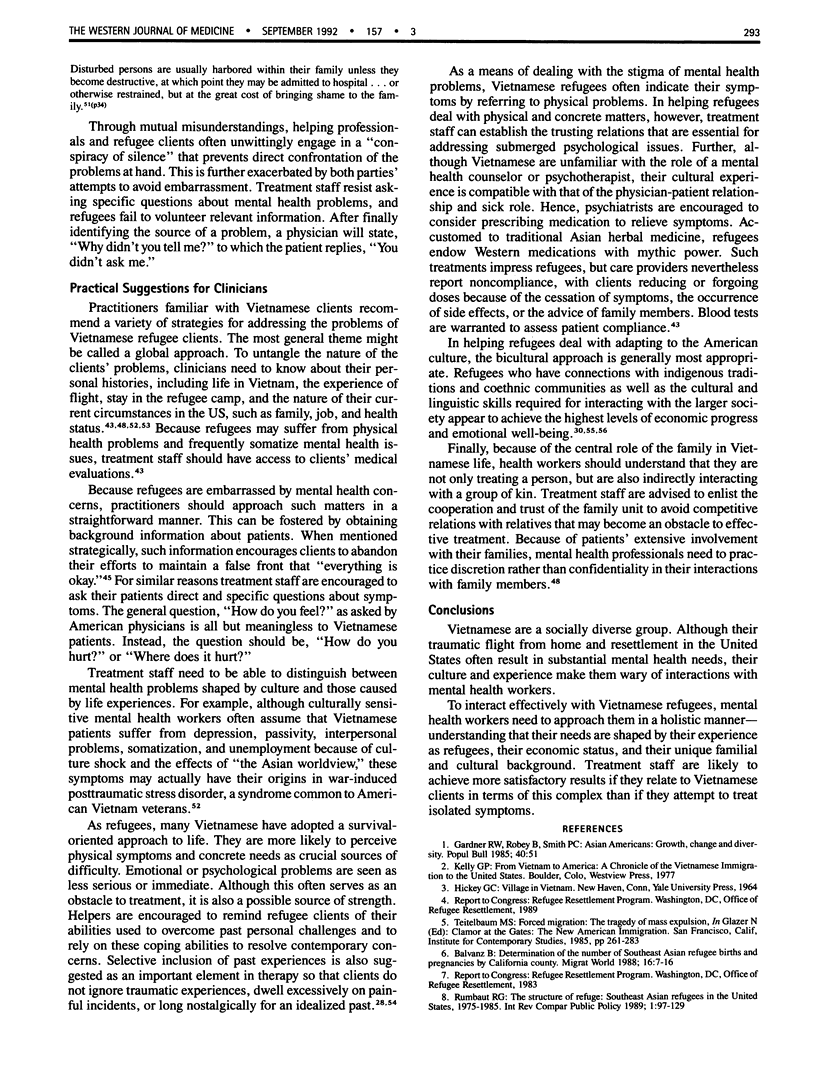
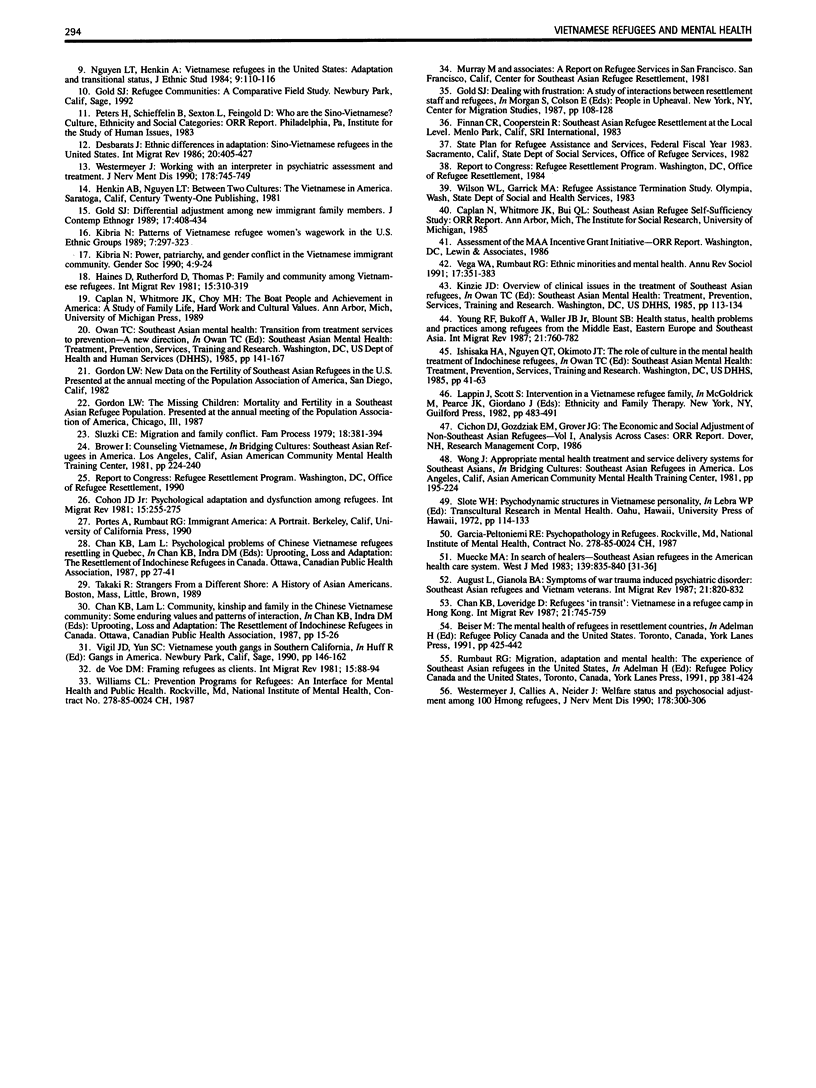
Selected References
These references are in PubMed. This may not be the complete list of references from this article.
- Muecke M. A. In search of healers--Southeast Asian refugees in the American health care system. West J Med. 1983 Dec;139(6):835–840. [PMC free article] [PubMed] [Google Scholar]
- Westermeyer J., Callies A., Neider J. Welfare status and psychosocial adjustment among 100 Hmong refugees. J Nerv Ment Dis. 1990 May;178(5):300–306. doi: 10.1097/00005053-199005000-00004. [DOI] [PubMed] [Google Scholar]
- Westermeyer J. Working with an interpreter in psychiatric assessment and treatment. J Nerv Ment Dis. 1990 Dec;178(12):745–749. doi: 10.1097/00005053-199012000-00003. [DOI] [PubMed] [Google Scholar]
- Young R. F., Bukoff A., Waller Jb, Blount S. B. Health status, health problems and practices among refugees from the Middle East, Eastern Europe and Southeast Asia. Int Migr Rev. 1987 Fall;21(3):760–782. [PubMed] [Google Scholar]


